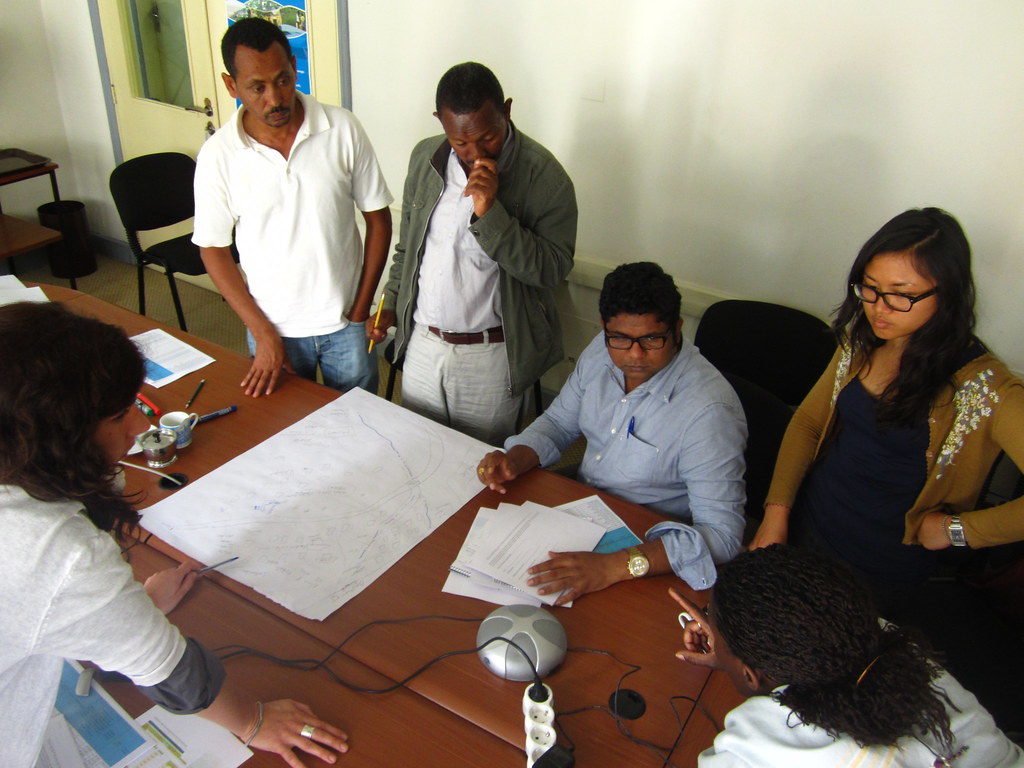Africa RISING Ethiopia project staff and partners trained in irrigation potential assessment
On 21 November 2014, the Africa RISING project conducted a one-day training for consultants and International Water Management Institute (IWMI) staff, at the International Livestock Research Institute (ILRI) campus in Addis Ababa, on data collection and technical skills on irrigation potential assessment in the project’s action sites in Amhara, Oromia, SNNPR and Tigray.
Africa RISING is carrying out assessments to identify the irrigation potential in the four regions to find out the irrigation technologies each target household is interested in, and is capable of, implementing to improve their current irrigation practice as a pathway to sustainable agricultural intensification.
‘We want to understand the irrigation technologies that work best for people in our project areas,’ said Valentine J Gandhi, a researcher with IMWI. ‘We will then work with them in implementing these methods so that they can improve their food, nutrition and income security and conserve natural resources.’

During the training, Petra Schmitter, an agricultural water management specialist at IWMI highlighted methodologies for data collection on potential irrigation and water demands in the regions as well as water lifting technologies. Research protocols and objectives run by IWMI and other partners, how to develop action plans and social mapping to identify irrigated areas and data tools were also addressed during the training.
Africa RISING in Ethiopia aims at sustainable intensification of mixed crop-livestock systems as a key pathway towards better food security, improved livelihoods and a healthy environment. The availability of the right data and information is among one of the most important factors in achieving this goal.
The Africa RISING program comprises three research-for-development projects funded by the United States Agency for International Development (USAID) that contribute to the Feed the Future Initiative and aim to sustainably intensify mixed farming systems in West Africa (Northern Ghana and Southern Mali), the Ethiopian Highlands and East and Southern Africa (Malawi,Tanzania and Zambia). In Ethiopia, the project works in eight interventions kebeles (the lowest administrative units in Ethiopia) and in four woredas/districts of Amhara, Oromia, SNNP and Tigray regions.
Written by Desalegne Tadesse, communications and uptake officer at IMWI.





Latest Comments